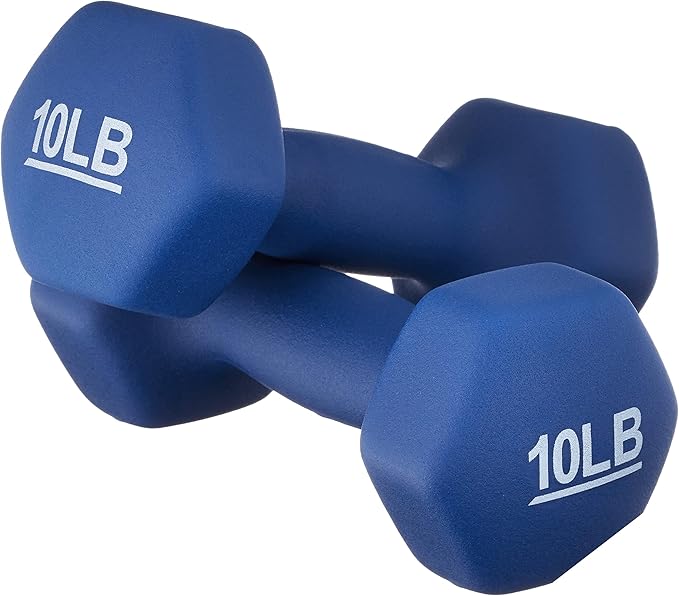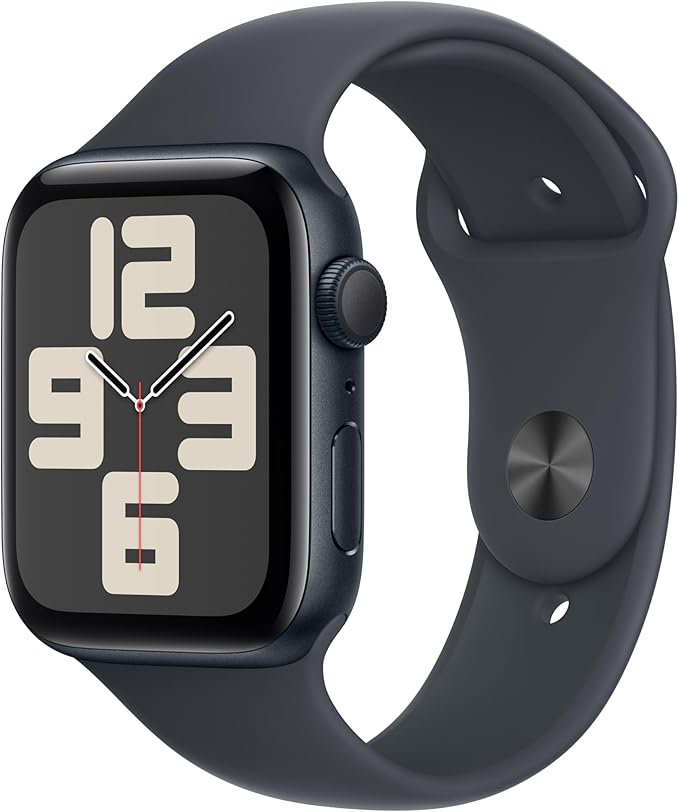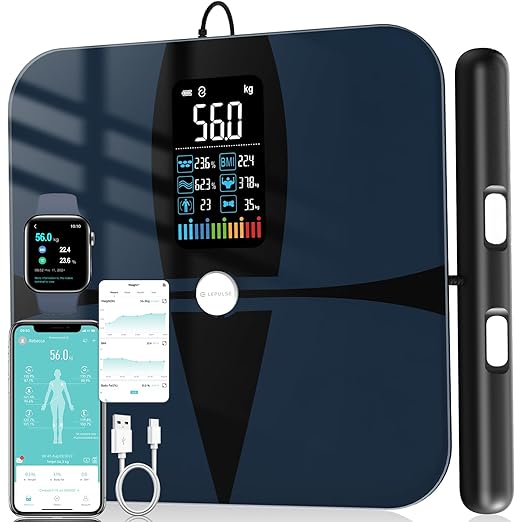Body Fat Calculator
Calculate your body fat percentage using the Navy method. Get accurate estimates based on your measurements and understand your body composition for better fitness planning.
Enter Your Measurements
Measure around your waist at the level of your navel
How to Measure:
Waist: Stand straight and measure around your waist at the level of your navel.
Hip (women): Measure around the widest part of your hips.
Weight: Use a reliable scale, preferably in the morning.
Body Fat Categories
About Body Fat
Body Fat Percentage is a more accurate measure of health than BMI alone.
U.S. Navy Method: This calculator uses the U.S. Navy's body fat estimation formula.
Limitations: This is an estimate. For precise measurements, consider professional body composition testing.
Note: Body fat percentages vary by age, gender, and fitness level. These are general guidelines.
Body Composition Tools
Essential tools to help you track your body fat and fitness progress

Digital Scale
Precise digital scale for accurate weight and body composition tracking
Shop Digital Scale
Apple Watch SE
Smart fitness tracker to monitor your progress and body composition
Shop Apple Watch SEWhat is Body Fat Percentage?
Body fat percentage is the proportion of your body weight that consists of fat tissue. Unlike BMI, body fat percentage distinguishes between muscle and fat, providing a more accurate assessment of your body composition.
Why Measure Body Fat?
Understanding your body fat percentage helps you track fitness progress, set realistic goals, and optimize your training and nutrition plans.
Body Fat Categories
- Essential Fat:2-5% (men), 10-13% (women)
- Athletes:6-13% (men), 14-20% (women)
- Fitness:14-17% (men), 21-24% (women)
- Average:18-24% (men), 25-31% (women)
- Obese:25%+ (men), 32%+ (women)
Benefits of Tracking Body Fat
- •More accurate than BMI
- •Better progress tracking
- •Optimize training programs
- •Improve body composition
Frequently Asked Questions About Body Fat
What is body fat percentage and why is it important?
Body fat percentage is the proportion of your body weight that consists of fat tissue. Unlike BMI, body fat percentage distinguishes between muscle and fat, providing a more accurate assessment of your body composition. It's important because it helps you track fitness progress, set realistic goals, and optimize your training and nutrition plans.
How accurate is the Navy body fat calculator?
The Navy body fat calculator is reasonably accurate for most people, with an error margin of about 3-4%. It uses circumference measurements and is based on the U.S. Navy's body composition assessment method. While not as precise as DEXA scans or hydrostatic weighing, it's a practical and accessible method for tracking body fat changes over time.
What are healthy body fat percentages?
Healthy body fat percentages vary by gender and fitness level. For men: essential fat 2-5%, athletes 6-13%, fitness 14-17%, average 18-24%, obese 25%+. For women: essential fat 10-13%, athletes 14-20%, fitness 21-24%, average 25-31%, obese 32%+. These ranges account for biological differences between genders.
How do I measure my waist and hip circumference?
For waist measurement: Stand straight and measure around your waist at the level of your navel. For hip measurement (women): Measure around the widest part of your hips. Use a flexible measuring tape and ensure it's snug but not tight. Take measurements in the morning before eating for consistency.
How often should I measure my body fat?
Measure your body fat every 2-4 weeks to track progress. More frequent measurements (weekly) can be misleading due to daily fluctuations in water weight and other factors. Focus on trends over time rather than individual measurements. Always measure under similar conditions (same time of day, same hydration level).
What's the difference between body fat and BMI?
BMI only considers height and weight, while body fat percentage measures actual body composition. BMI can misclassify muscular individuals as overweight because it doesn't distinguish between muscle and fat. Body fat percentage provides a more accurate assessment of health and fitness, especially for athletes and active individuals.
How can I reduce my body fat percentage?
To reduce body fat percentage, focus on a combination of strength training, cardiovascular exercise, and proper nutrition. Create a moderate calorie deficit (500 calories per day), prioritize protein intake (1.2-1.6g per kg body weight), and include both resistance training and cardio in your routine. Remember that spot reduction doesn't work - fat loss occurs throughout the body, not just in specific areas.

